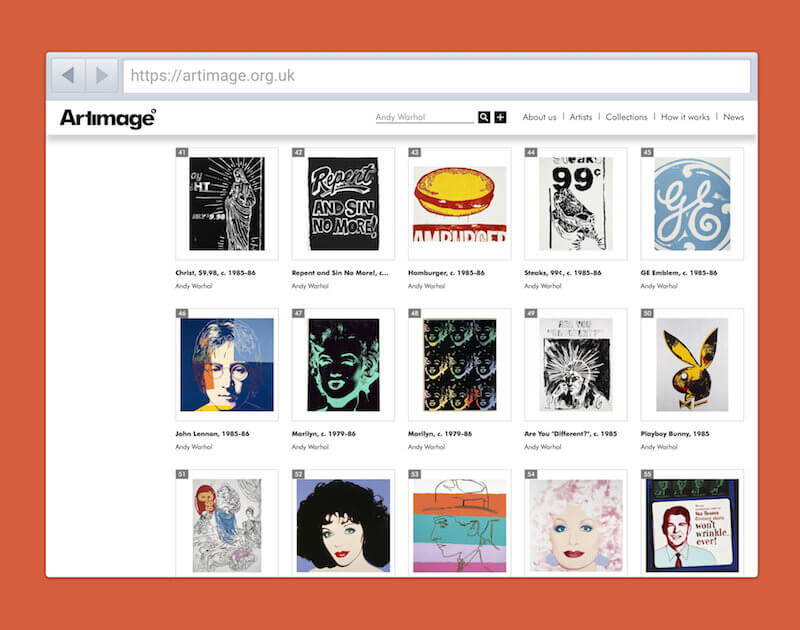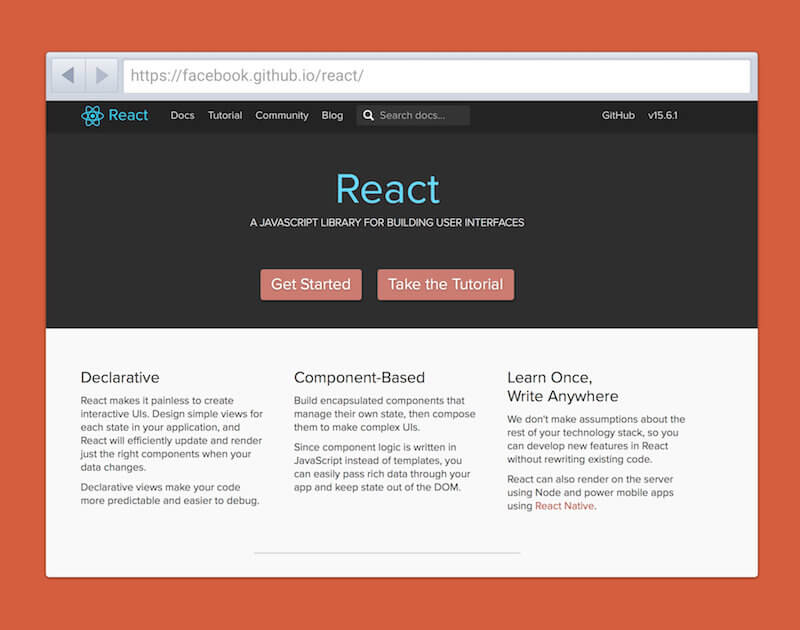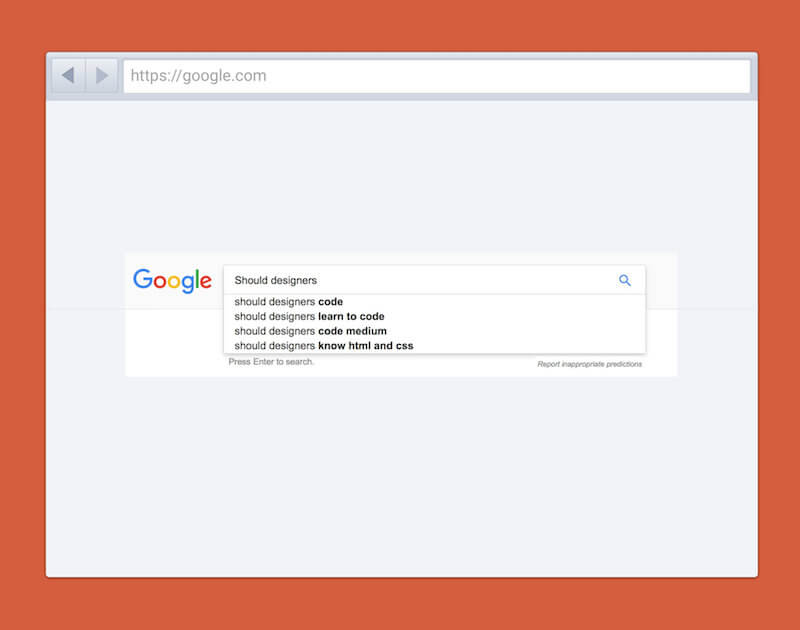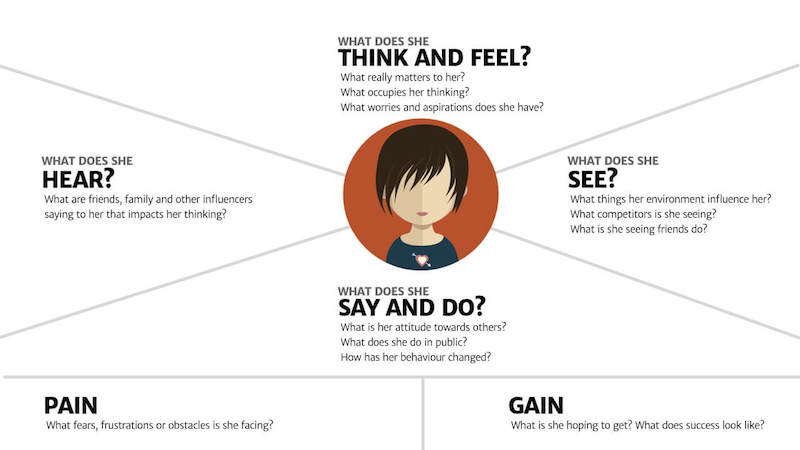The Missing Advice I Needed When Starting My Career
Do you ever wish you had a time machine? I certainly do, but not for the usual reasons. I want a time machine so I can go back and have a frank conversation with my younger self. I’ll let you in on a bit of a secret: My younger self was an idiot!
I have been working on the web for over 22 years now, and I feel like I wasted so many of those years. If only I could go back and share a few hard truths with myself at the start of my career. Unfortunately, I cannot, but I can share that advice with you.
Admittedly, you are almost certainly not as idiotic as I was. But hopefully, there will be something in this advice that inspires you.
Speaking of inspiration, that leads me nicely into my first piece of wisdom!
Look Beyond The Web For Inspiration
I used to be a dedicated follower of fashion who wasted so much time looking at other “cool” websites and browsing galleries of inspirational websites. My design style would morph to embrace the latest trends, from Web 2.0 to hero banners.
The result of this was bland “me too” design. But worst of all, it never put the user first. It was all about making something look good in my portfolio.

It was such a waste because so much inspiration is all around us: great books on classic print design, architectural trends, even airport signage (a personal obsession of mine).
Don’t make my mistakes. You don’t even have the luxury of my excuses. With CSS Grid, the possibilities are endless, and we should all embrace them.
On the subject of latest trends, that brings me to my next transgression: obsessing over tools.
Stop Obsessing Over Tools
We’ve wasted hours arguing over what tool is best. Should we code in PHP or classic ASP? (Yes, I am that old.) Can I be a “proper” web designer and code in Dreamweaver? Which content management systems should we use? The list went on.
Some tool or other would become trendy for whatever reason, and we would all jump on the bandwagon, until the next one emerged, and we jumped to that after an even more furious debate.
I see the same today: arguments over frameworks and whether we should embrace Angular or React. I don’t follow these discussions anymore because somewhere along the line I realized something: There is no single answer.

A lot of these choices come down to personal preference or the requirements of the individual client. Remain flexible and open to change. If you don’t, you’ll go the way of Flash developers.
All of that time I wasted arguing about tools would have been so much better spent elsewhere, like on improving my soft skills.
Get Better At Working With Others
I was an insufferable know-it-all when I was young. I always had the answers and always knew a better way to do something. I am sure you are not like that, although, let’s be honest, how would you know if you were? I certainly had no idea how irritating I was, despite the warning signs.
For a start, I found myself constantly arguing with everybody. Everything seemed like a battle because nobody around me “got it.” In hindsight, that was because I was too busy irritating everybody to take the time to explain things properly. But at the time, it just felt like everybody else was stupid.
I wish I had realized how weak I was in this area. Perhaps then I would have invested time and energy in improving how I worked alongside other people. Maybe I would have listened more and put the same effort into understanding my colleagues as I did my users.
I am not suggesting I should have done this necessarily to be a good man (trust me, I am not now). Instead, I should have done this because it would have made my life so much easier. I wasted endless time arguing and alienating people, people I needed on my side to do my job. It was incredibly frustrating.

If I had developed that skill of working with people earlier, it would have also allowed me to push beyond the confines of my role.
Always Push Beyond Your Job Description
I confess that, for many years, I was a bit of a job’s worth. I was a designer, and I spent much of my working life complaining because other people weren’t doing their jobs properly. Clients failed to deliver copy, developers didn’t implement my designs correctly, and project managers were always putting unrealistic constraints on me.
To be fair to my younger self, these were all real problems. But I did nothing but moan about them. I made no effort to help my colleagues fix these issues. I never questioned why the client was failing to deliver content or why the project manager seemed so unreasonable? I didn’t bother to understand the constraints they faced.
When I did eventually wake up and start paying attention, I discovered a bigger world. I found out just how interconnected digital and the user experience are, and how many things beyond the screen influence the experience.
I learned so much over that time, and you can, too. Take the time to understand the roles of those around you. Understand their challenges and constraints. Understand their perspectives and motivations. This will not only improve your working relationship, but make you better at your job, too.

If you are a designer, this will enhance your designs, making them more useful in the “real world.” If you are a developer, you will understand the challenges users face and the impact you have on the user experience. And so it goes on.
Ultimately, this will make you better at your job and hopefully progress your career. But a successful career is about more than being good at your job.
Commit To Putting Yourself Out There
You could be the best designer or developer in the world, but if nobody has heard of you, you will have little success. That probably isn’t right or fair, but that is the reality.
I’ll be honest with you: Many people are far better at their jobs than me. But I speak all around the world, write books and have built a significant following, not because I am good at what I do, but because I put myself out there.
But it took me so long to realize that. I wasted years moaning about how it was unfair that other people got to write and speak and how my ideas were just as good as theirs.
Eventually, it twigged that I didn’t need anybody’s permission to start sharing my thoughts. I could write on a blog without a publisher and speak on a podcast without a conference.
You can, too. Not only that, you should! If you are not sharing what you have learned, you are invisible, and that will hamper your career.

You might feel you have nothing new to say. Don’t worry, just share what you have learned. There will always be people who haven’t learned those lessons yet.
You might feel nobody is listening. Again, don’t worry. If you persevere, eventually people will start paying attention. I’ll let you in on a secret: Quality is not the number one reason for success. Consistency is. Even second-rate content will draw attention if you release it regularly enough.
Put yourself out there, in whatever way you choose. It will enable you to build contacts in the industry. That will help you avoid the last mistake my younger self-made: wasting too many years working for appalling bosses.
Don’t Put Up With A Terrible Boss
I worked for some truly nasty people, ranging from the incompetent to the criminal. Two ended up in prison, and the only good guy I ever worked for died of a heart attack due to stress!
I wasted years working for these people, years of them undervaluing my work and failing to invest in enabling me to do it better. Admittedly, I could be a bit of an idiot, as we have already established. But even with hindsight, these people were terrible. Unfortunately, apathy and fear prevented me from moving on.
Don’t make my mistake. There is no need. We are much in demand. Getting good digital staff is incredibly challenging, and you owe no loyalty to a boss who doesn’t value your expertise.
Instead, find a company that is going to nurture you and help you grow in your career. I’ll be honest: I never achieved that. I never had a mentor or somebody to teach me. I stumbled my way through my career, and I think I am the poorer for it. So, don’t settle. You deserve better, and loads of great jobs are out there.
Further Reading
- Better Context Menus With Safe Triangles
- Top Front-End Tools Of 2023
- How To Improve And Measure Your Progress Learning Web Design
- How To Become A Better Speaker At Conferences








